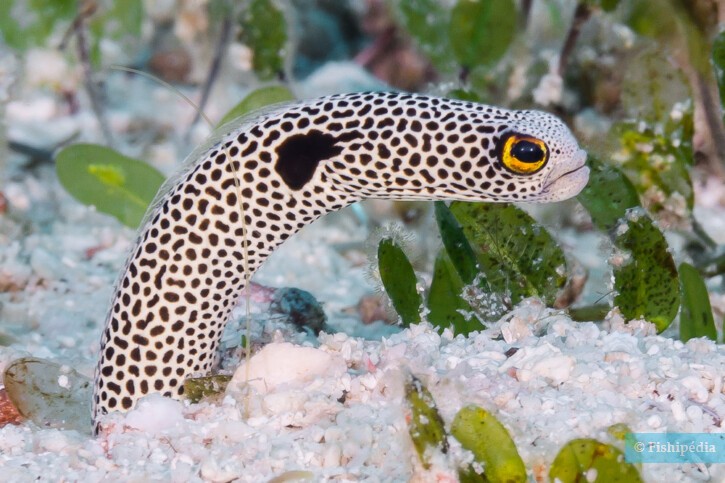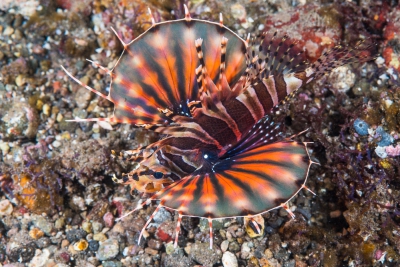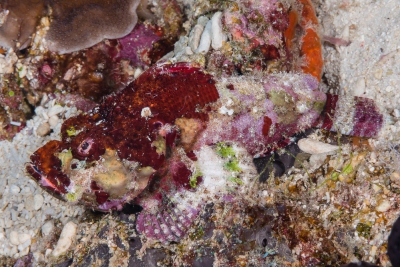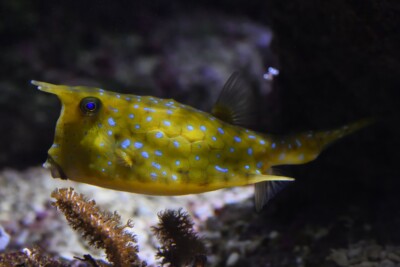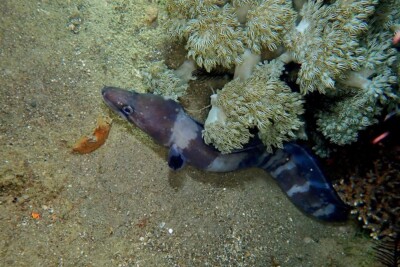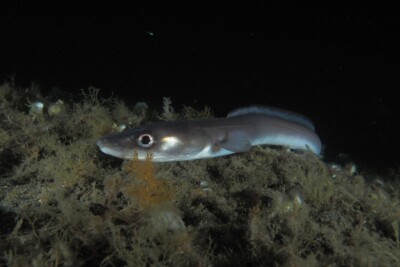hass's garden eel
| Scientific name | Heteroconger hassi |
|---|---|
| Descriptor | Klausewitz&Eibl-Eibesfeldt |
| Year of description | 1959 |
| IUCN category (World) | LC |
| Family | Congridae |
| Genus | Heteroconger |
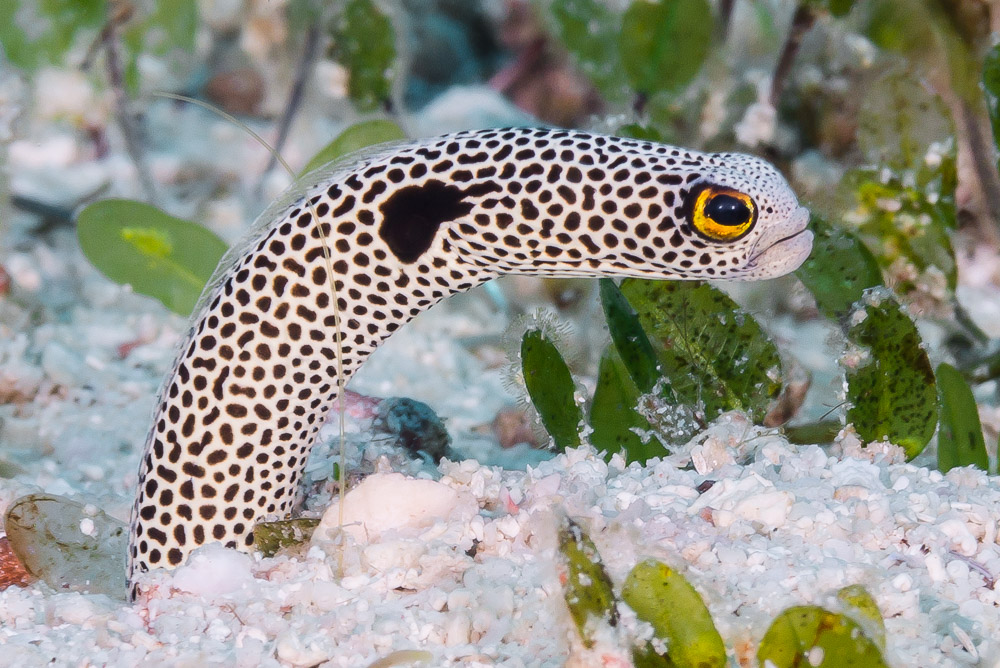

Introduction
Heteroconger hassi, commonly known as the Hass's garden eel, is a small marine fish primarily found in tropical areas of the Red Sea, throughout the Indian Ocean, and west of the Pacific Ocean.
Like its counterparts, this species has the unique behavior of living in a single burrow that it will never leave throughout its lifetime. This atypical behavior has contributed to its popularity among a wide audience, leading to its regular presence in public aquariums.
Who is it?
Morphology
-
Average size40 cm
-
Maximum size50 cm
-
Longevity35 year
-
ShapeSerpentiform
-
Mimicryplants
-
Patterntasks
-
Average size40 cm
-
Maximum size50 cm
-
Longevity35 year
-
ShapeSerpentiform
-
Mimicryplants
-
Patterntasks
How to recognize This fish ?
This Hass's garden eel typically measures around 40 centimeters, with individuals possibly reaching 60 centimeters. It is easily recognizable by its two large black patches, the first circular one located behind the gills, and the second, flatter one present at the end of the first quarter of the body.
The body is beige to yellowish, covered with small black spots. A similar species is found in Indonesia and around the Great Barrier Reef: H. taylori. The pattern is similar but it lacks the large black patches.
Sexual dimorphism
As with other conger eels, males may be more robust.
Behaviour & Life cycle
-
dietcarnivorous
-
Sociabilityliving in colonies
-
territorialYes
-
Way of livingdiurnal
During the day, each Hass's garden eel resides in a permanent burrow, with part of its body protruding to capture aquatic microorganisms brought by the current. When potential predators or large animals pass by, individuals retreat to the bottom of the burrow. Common predators may include certain sparids.
Each fish has a certain level of autonomy, but group behaviors are likely, at least for alerting in case of danger. Colonies of several hundred individuals have been observed.
Reproduction
-
Reproductionovipare qui pond en eau libre
Reproduction seems to occur when the light is low, enhancing the survival chances of the eggs. Little information is known about this particularly timid species. Spawning likely takes place outside the burrow, between a male and a female located in two adjacent burrows. The eggs are fertilized in close proximity to the two burrows and then carried away by the current.
For a while, scientists hypothesized that eggs and larvae developed in the substrate, within the colony itself, but this assumption is now universally recognized as invalid.
Harmless species
This species does not pose a particular danger to humans if encountered in its natural habitat.
Origin and distribution

Geographic distribution & Conservation
Hass's garden eel is one of the most widely distributed species in the genus, which also explains its regular presence in aquariums. It is found from the Red Sea and the coasts of East Africa to the Great Barrier Reef and Micronesia. The populations do not appear to be threatened at this time.
Conservation status of populations (IUCN)
What is its habitat?
Natural environment characteristics
-
Temperature24 - 28 °C
-
Depth5 - 50 m
-
FlowMedium
Biotope presentation
Colonies of Hass's garden eel have been documented on sandy bottoms between 5 and 50 meters. This species seems more common below 15 meters, in areas with minimal currents.
Species of the same biotope
To go further
Sources & Contributions
Participation & Validation
The Fishipedia team and specialist contributors are committed to providing high-quality content. However, although the information comes from scientific sources or testimonials from specialists, the cards may contain inaccuracies.

Benoit Chartrer
Translation
Translation done with the valuable contribution of our translators, who make this information available to a wider audience. We sincerely thank them for their commitment.
Bibliographic references
Heteroconger guttatus, a new species of garden eel (Pisces: Congridae: Heterocongrinae) from West Papua, Indonesia - GERALD R. ALLEN - MARK V. ERDMANN - MEITY U. MONGDONG - Journal of the Ocean Science Foundation - 2020.
Spawning behavior of garden eels, Gorgasia preclara and Heteroconger hassi (Heterocongrinae), observed in captivity - Tomohiro Kakizakia - Keisuke Kobayashia - Toshiyuki Nakatsuboa - Ryoshiro Wakiyab - Shun Watanabec - Michael J. Millerc - Katsumi Tsukamoto - Marine and Freshwater Behaviour and Physiology - 2015. 48:5, 359-373, DOI: 10.1080/10236244.2015.1064213
Scientific partners
Tags
Species of the same family
Species of the same biotope
